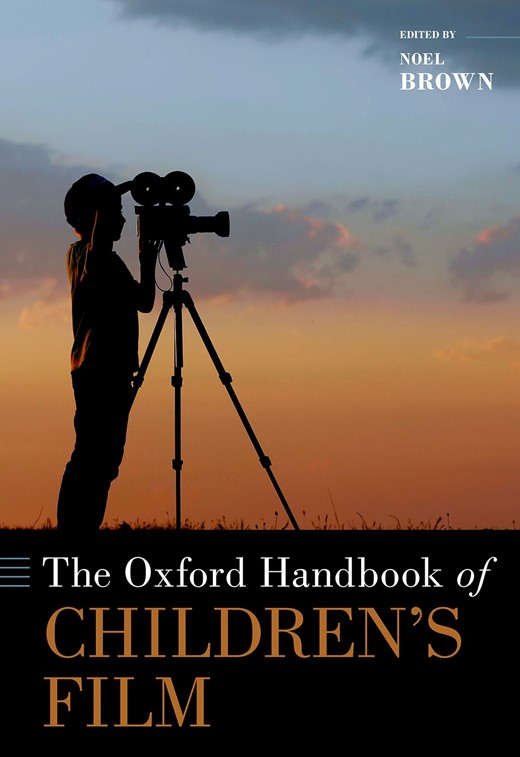 The Oxford Handbook of Children's Film
The Oxford Handbook of Children's Film
Contents
-
-
-
-
-
-
-
-
-
-
-
-
-
-
From Fairy Story to Allegory From Fairy Story to Allegory
-
Allegorizing the Emergency Allegorizing the Emergency
-
A Cautionary Tale for the Present A Cautionary Tale for the Present
-
Notes Notes
-
Bibliography Bibliography
-
-
-
-
-
-
-
-
-
-
-
-
22 Unreality, Fantasy, and the Anti-fascist Politics of the Children’s Films of Satyajit Ray
Get accessKoel Banerjee is a Visiting Postdoctoral Fellow at Carnegie Mellon University. Her research interests include South Asian cinema, transnational melodrama, neoliberalism, and consumer culture. She has published in the journals Cultural Critique, Studies in South Asian Film and Media, Film Quarterly, and Screen (forthcoming), and her work has appeared in several anthologies, including Third Cinema, World Cinema and Marxism, and Bollywood’s New Woman: Liberalization, Liberation, and Contested Bodies.
-
Published:20 April 2022
Cite
Abstract
This chapter focuses on Satyajit Ray’s Hirak Rajar Deshe (Kingdom of Diamonds, 1980) and explores how the genre of the children’s film responds to its political milieu. Ray had been criticized his contemporaries for not being political enough, and his carefully crafted naturalism was seen as an impediment to politically committed cinema. However, in Hirak Rajar Deshe, Ray deviates from his seamless naturalist style and provides an acerbic critique of the Emergency, which was a period of curtailment of civil liberties imposed by the Indira Gandhi government in India between 1975–1977. The chapter asks how the children’s film genre the enables Ray to mount such a critique of state-sponsored violence that is otherwise thought to be missing from his oeuvre. The chapter argues that the allegorical structure of the film enables it to transcend its own temporal referents to offer a critique of the fascism that we are encountering in our present moment.
Sign in
Personal account
- Sign in with email/username & password
- Get email alerts
- Save searches
- Purchase content
- Activate your purchase/trial code
- Add your ORCID iD
Purchase
Our books are available by subscription or purchase to libraries and institutions.
Purchasing information| Month: | Total Views: |
|---|---|
| October 2022 | 2 |
| November 2022 | 1 |
| December 2022 | 4 |
| January 2023 | 7 |
| February 2023 | 5 |
| March 2023 | 6 |
| April 2023 | 5 |
| May 2023 | 3 |
| June 2023 | 2 |
| July 2023 | 4 |
| August 2023 | 7 |
| September 2023 | 6 |
| October 2023 | 4 |
| November 2023 | 2 |
| December 2023 | 2 |
| February 2024 | 1 |
| March 2024 | 1 |
| April 2024 | 7 |
| May 2024 | 7 |
| June 2024 | 2 |
| July 2024 | 2 |
| October 2024 | 1 |
| January 2025 | 2 |
| February 2025 | 2 |
| April 2025 | 4 |

Get help with access
Institutional access
Access to content on Oxford Academic is often provided through institutional subscriptions and purchases. If you are a member of an institution with an active account, you may be able to access content in one of the following ways:
IP based access
Typically, access is provided across an institutional network to a range of IP addresses. This authentication occurs automatically, and it is not possible to sign out of an IP authenticated account.
Sign in through your institution
Choose this option to get remote access when outside your institution. Shibboleth/Open Athens technology is used to provide single sign-on between your institution’s website and Oxford Academic.
If your institution is not listed or you cannot sign in to your institution’s website, please contact your librarian or administrator.
Sign in with a library card
Enter your library card number to sign in. If you cannot sign in, please contact your librarian.
Society Members
Society member access to a journal is achieved in one of the following ways:
Sign in through society site
Many societies offer single sign-on between the society website and Oxford Academic. If you see ‘Sign in through society site’ in the sign in pane within a journal:
If you do not have a society account or have forgotten your username or password, please contact your society.
Sign in using a personal account
Some societies use Oxford Academic personal accounts to provide access to their members. See below.
Personal account
A personal account can be used to get email alerts, save searches, purchase content, and activate subscriptions.
Some societies use Oxford Academic personal accounts to provide access to their members.
Viewing your signed in accounts
Click the account icon in the top right to:
Signed in but can't access content
Oxford Academic is home to a wide variety of products. The institutional subscription may not cover the content that you are trying to access. If you believe you should have access to that content, please contact your librarian.
Institutional account management
For librarians and administrators, your personal account also provides access to institutional account management. Here you will find options to view and activate subscriptions, manage institutional settings and access options, access usage statistics, and more.